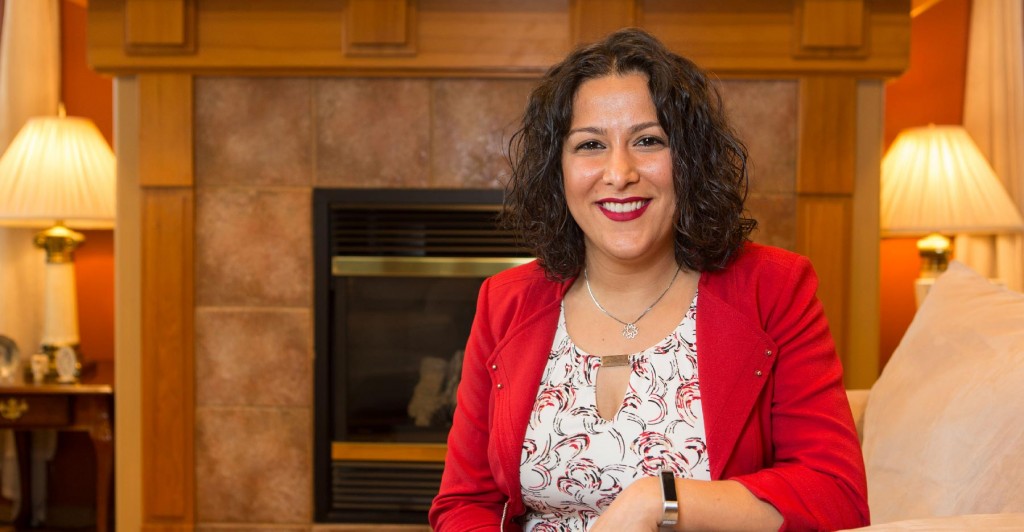Page 14 • (143 results in 0.124 seconds)
-
understand the dynamics of the patient and the therapeutic relationship with children, adolescents, adults, elders, families, and groups. (1) GNUR 751 : PMHNP 1 Seminar/Clinical Discussion of PMHNP 1 course concepts with real-life scenarios. Includes demonstration of clinical concepts; including, assessment, differential diagnosis, and documentation. Clinical practice preceptorship to develop mental health exam, differential diagnosis, diagnostic reasoning, and plan of care for individuals with common
-
understand the dynamics of the patient and the therapeutic relationship with children, adolescents, adults, elders, families, and groups. (1) GNUR 751 : PMHNP 1 Seminar/Clinical Discussion of PMHNP 1 course concepts with real-life scenarios. Includes demonstration of clinical concepts; including, assessment, differential diagnosis, and documentation. Clinical practice preceptorship to develop mental health exam, differential diagnosis, diagnostic reasoning, and plan of care for individuals with common
-
demographics on institutions of power and on democracy in the U.S. (Intensive writing course). Prerequisite: POLS 251. (4) POLS 370 : Prisons & Prisoners This course is an examination of the era of mass incarceration in the United States. We will explore the racial, economic, and gender dynamics of this issue as well as various alternatives to the current system. This course meets an elective requirement or a public policy requirement for the Political Science major or minor. (4) POLS 371 : Judicial
-
academic unit. (1 to 4) SOCI 391 : Sociology of Religion An investigation of the American religious scene with particular emphasis on religious group dynamics and processes, how people become religious, and measuring religiosity. This course will examine the interplay between religion and society and focus on how sociologists study religion. Prerequisite: SOCI 101 or consent of instructor. (4) SOCI 393 : Gender & Violence An examination of gendered violence in American society. Focal topics will vary
-
/Pixar. The storytelling elements and cultural relevance to my current journey have allowed me to better understand my own experience of Muertos in an engaging and comprehensible way. It has helped me better understand the family dynamics in México and the importance of traditions such as Muertos in this culture. For those of you who are interested in the opportunity to begin to learn more about the tradition of Día de los Muertos, Coco is an incredible first step. Although it cannot begin to
-

, teaching life skills and empowering young people. She also taught English classes privately out of her home. “I had a strong desire to serve my country and people,” she said. “Through our educational work, I learned that I needed to know more about family dynamics in order to be more effective serving this population. … I came to a conclusion that marriage and family therapy could provide me with skills and expertise needed.” After two years of research, Sabet-Kazilas applied to roughly 20 programs in
-
figure is not in perfect condition, this sculpture illustrates the honored role of Yoruba women as mothers. In Yoruba art tradition, mother figures are commonly depicted as nursing, holding, or surrounded by one or more children because motherhood and the ability to create new life are highly honored. Additionally, this mother figure serves as an example of how the idealized gender dynamics of the Yoruba are commonly portrayed in art. Overall, male and female Yoruba have complementary gender
-
resource management and use. Course may not be repeated for credit. Prerequisite: BIOL 226 or consent of instructor. (4) BIOL 368 : Ecology Organisms in relation to their environment, including organismal adaptations, population growth and interactions, and ecosystem structure and function. Laboratory/discussion in addition to lecture. Prerequisite: BIOL 226. (4) BIOL 369 : Marine Biology The ocean as environment for plant and animal life; an introduction to structure, dynamics, and history of marine
-
students in observational astronomy and fluid dynamics research, and she contributed to NASA’s Dawn Mission timeline. Her passions for astronomy, music, and art inspire outreach projects, including the children’s book about astronomy, Little Bear’s Big Night Sky, that she wrote and illustrated.Stephanie L. Johnson is the dean of the College of Liberal Studies at Pacific Lutheran University and a professor of English. She is the co-editor of Cultivating Vocation in Literary Studies (Edinburgh 2022) and
-
ocean as environment for plant and animal life; an introduction to structure, dynamics, and history of marine ecosystems. Lab, field trips, and term project in addition to lecture. Prerequisite: BIOL 226. (4) BIOL 387 : Special Topics in Biology Selected topics as announced by the department. May be repeated for credit. (1 to 4) BIOL 388 : Special Topics in Biology To provide undergraduate students with new, one-time, and developing courses not yet available in the regular curriculum. The title will
Do you have any feedback for us? If so, feel free to use our Feedback Form.


